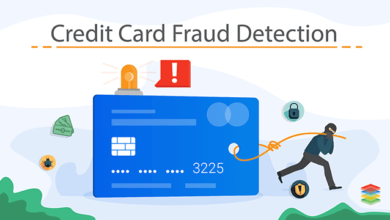US Bank Email Fraud Threats8

Introduction
In a period overwhelmed by advanced exchanges, the phantom of US Bank email fraud poses a potential threat, presenting both positive and negative ramifications. This article digs into the subtleties of US Bank email fraud, featuring the positive steps taken to battle it while tending to the likely adverse consequence on clueless record holders.
The Positivity of Vigilant Defenses
Before exploring the challenges of US Bank email fraud, let’s acknowledge the positive sentiment associated with the bank’s vigilant defense mechanisms.
Advanced Security Protocols
- US Bank utilizes progressed security conventions to shield its clients against email misrepresentation. From encryption to multifaceted validation, these conventions feature a promise to remain in front of expected dangers and safeguard account holders.
Educational Initiatives
- The bank prioritizes client education, offering resources and guidelines to enhance awareness of email fraud risks. Empowering clients with knowledge ensures they can identify phishing attempts and take preventive measures to secure their accounts.
Understanding the Threat Landscape
Phishing Schemes Targeting US Bank Clients
- US Bank email fraud often manifests through sophisticated phishing schemes. Fraudsters employ deceptive tactics, posing as legitimate entities, and attempt to trick clients into divulging sensitive information. Recognizing and thwarting these phishing attempts is critical for clients to avoid falling prey to scams.
Malicious Email Attachments and Links
- Email fraudsters frequently employ tactics such as sending malicious attachments or deceptive links. These seemingly harmless elements can compromise the security of clients’ accounts, potentially leading to unauthorized access and financial loss.
The Negative Impact of Email Fraud
While the US Bank fortifies its defenses, the negative impact of email fraud on clients cannot be overlooked.
Financial Loss and Account Compromise
- Victims of US Bank email fraud may suffer direct financial losses as fraudsters gain unauthorized access to their accounts. The aftermath can include fraudulent transactions, drained funds, and the potential for lengthy recovery processes.
Compromised Personal Information
- Email fraud can lead to the compromise of personal information, including account credentials and contact details. The illicit acquisition of such data can expose clients to identity theft, leading to various forms of cybercrime.
Mitigating US Bank Email Fraud Risks
Client Awareness and Education
- US Bank encourages clients to remain vigilant and stay informed about email fraud risks. Educational resources empower clients to recognize phishing attempts, fostering a proactive approach to account security.
-
Multifaceted Confirmation (MFA)
- Multifaceted verification is an amazing asset in relieving email extortion gambles. Clients of the United States Bank are encouraged to enable MFA, which enhances account security and prevents unauthorized access.
-
Ordinary Record Observing
- Clients ought to embrace a proactive way to deal with account checking. Routinely evaluating account proclamations, exchange cautions, and quickly detailing any dubious movement to US Bank can limit the effect of email misrepresentation.
Reporting and Recovering from Email Fraud
Prompt Reporting to US Bank
- In the event of suspected email fraud, US Bank emphasizes the importance of prompt reporting. Clients should contact the bank immediately to report any phishing attempts or unauthorized access, enabling swift action to secure accounts.
Collaboration with US Bank Security Teams
- US Bank’s dedicated security teams work closely with clients to investigate and address reported email fraud incidents. This collaborative effort enhances the chances of a timely resolution and recovery of compromised accounts.
Moving Forward: Fortifying Cyber Resilience
Ongoing Security Enhancements
- US Bank remains committed to advancing its cybersecurity infrastructure to stay ahead of evolving threats. Ongoing enhancements and updates reflect a dedication to fortifying client defenses against email fraud and other cybersecurity risks.
Client Advocacy
- US Bank continues to advocate for its clients, leveraging its influence to promote cybersecurity awareness and support stronger industry-wide measures against email fraud. This advocacy underscores a commitment to the collective cybersecurity interests of US Bank clients.
Conclusion
US Bank email fraud represents an impressive test in the present computerized scene, requesting steady carefulness from both the monetary organization and its clients. While the adverse consequence of email extortion on casualties is significant, the positive opinion lies in the proactive measures taken by US Bank to battle these dangers. Clients can contribute to their own safety and the collective resilience against email fraud by staying informed, implementing security best practices, and working with the security teams at US Bank. As the US Bank keeps on developing its network protection systems, the monetary organization stays an unfaltering partner in the continuous fight against computerized dangers.




